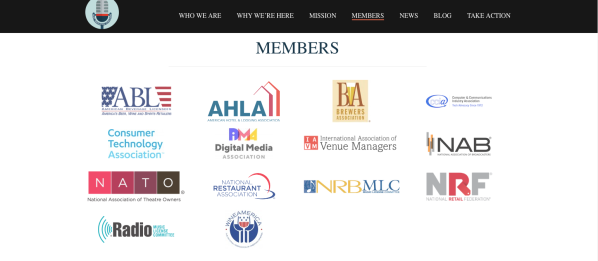MIC Coalition Filing Reveal: Transparency in Music Licensing And Ownership Act Is Back From The Dead
While the recently floated Transparency in Music Licensing and Ownership Act was thought to be dead and buried, it seems to be making something of a comeback courtesy of the MIC Coalition.
__________________________________________
Guest post by Chris Castle of The Trichordist
Remember the horrific Transparency in Music Licensing and Ownership Act from the last Congress? (See “The Transparency in Music Licensing and Ownership Act: The Domesday Book Meets A Unicorn“.)
Well, guess what–it’s not really dead! A little tea-leaf reading suggests that the MIC Coalition (one of the largest and most anticompetitive lobbying groups in history) have plans to amend the Music Modernization Act’s blanket license to all licensing verticals if they had their way. That would include “general licensing” in bars and restaurants to satisfy their hotel, restaurant and “beverage” folks. So there’s definitely some there there.

MIC Coalition Members
The MIC Coalition cartel filed a comment with the Copyright Office that makes one thing clear–this rule making is going to be a scorched earth donnybrook of epic proportions.
The big reveal in the MIC Coaltion’s filing is based on this passage in the legislative history for the Music Modernization Act:
Testimony provided by Jim Griffin at the June 10, 2014 Committee hearing highlighted the need for more robust metadata to accompany the payment and distribution of music royalties. With millions of songs now available to subscribers worldwide, technology also has a role to play through digital fingerprinting of a sound recording. However, there is no reliable, public database to link sound recordings with their underlying musical works. Unmatched works routinely occur as a result of different spellings of artist names and song titles….Music metadata has more often been seen as a competitive advantage for the party that controls the database, rather than as a resource for building an industry on.
The entire concept of maintaining a static look up database of not only all songs in the history of recorded music, but also all sound recordings in the history of recorded music that can be queried in real time is really not that different than the Domesday Book–when William the Conquerer made a big list of all property, people and chickens in England in the “Great Survey” in 1086. Like the Domesday Book, the “musical works database” will be full of mistakes due to the dynamic nature of the things it is purporting to count.
But the reveal is the heaping praise on the horrific Transparency in Music Licensing and Ownership Act which was designed to destroy the PRO system (just like the MIC Coalition):
In response to the Copyright Office recommendations, Representative Jim Sensenbrenner introduced the Transparency in Music Licensing and Ownership Act, H.R. 3350, in July of 2017, which was cosponsored by several members of the House Judiciary Committee. The bill would provide for a database, housed at and overseen by the U.S. Copyright Office, to aid businesses and establishments that publicly perform musical works and sound recordings in identifying and compensating the holders of rights in those works.
Fasten your seatbelts, it’s going to be a bumpy night.